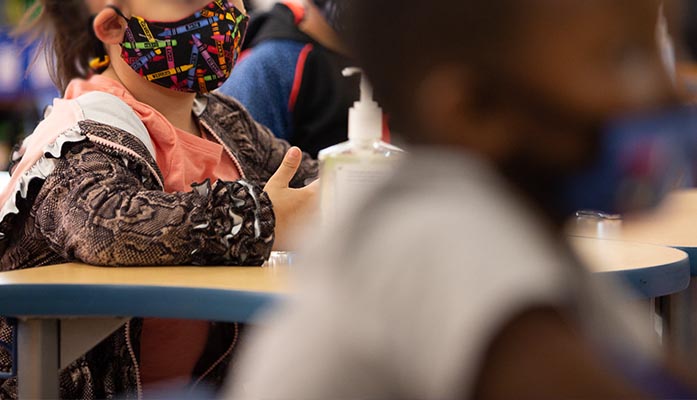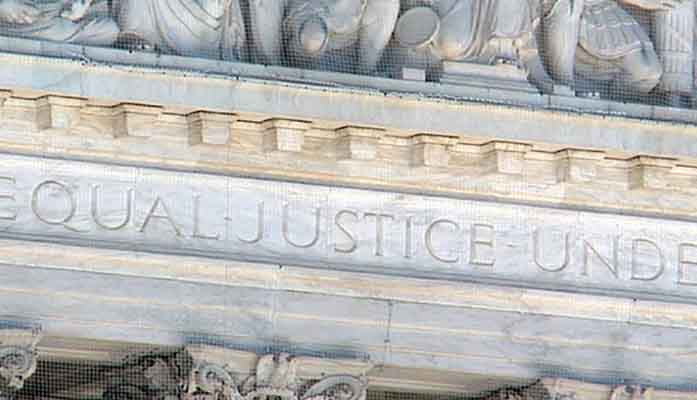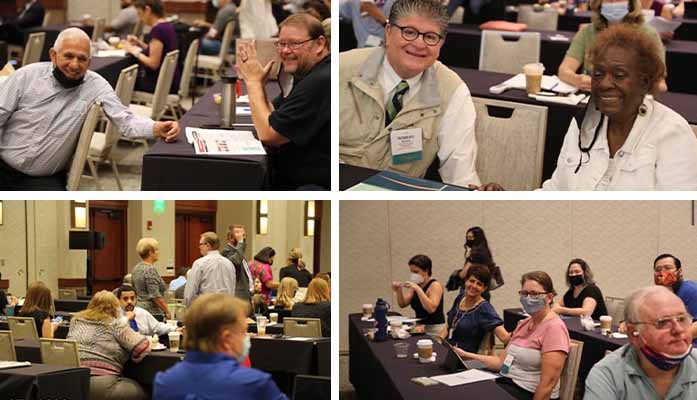
by Corinne Murdock | Oct 6, 2021 | Education, News
By Corinne Murdock |
Governor Doug Ducey refused to heed the Biden Administration’s warning that two of his programs rewarding mask-free schooling couldn’t be using federal COVID-19 relief funds. Almost immediately after receiving the Department of Treasury’s (USDT) request to pull back his programs, Ducey issued a public statement that he would continue to defend parents’ choice. He also questioned why President Joe Biden opposes programs designed to help children who fell behind due to COVID-19 measures such as school shutdowns, mask mandates, forced quarantines, and distanced learning.
“Here in Arizona, we trust families to make decisions that are best for their children. It’s clear that President Biden doesn’t feel the same. He’s focused on taking power away from American families by issuing restrictive and dictatorial mandates for his own political gain. After the many challenges of last year, it should be our top priority to get our kids caught up. That’s exactly what this program does — it gives families in need the opportunity to access critical educational resources. Why is the president against that?”
American Federation for Children’s Arizona State Director, Steve Smith, asserted that he stood by Ducey’s response. He pointed out that public schools with mask mandates have access to an overwhelming majority of the federal relief funds; essentially, Ducey’s two programs are a drop in the funds bucket.
“I applaud Governor Ducey for doing all he can to provide more education options for Arizona families through this unprecedented time. It is alarming that anyone, especially elected officials whose responsibility it is to advocate for Arizonans, would not only oppose these options but then actively lobby the federal government to take these resources away from families,” said Smith. “It’s all the more frustrating considering the fact that 97 percent of the $190 billion in federal relief funds have gone to public schools that in many cases, are still sitting on it.”
Ducey’s response addressed a letter issued Tuesday by USDT Deputy Secretary Adewale Adeyemo. He told Ducey it wasn’t permissible to use federal relief funds for either the $10 million school voucher program that covers $7,000 of tuition or other educational costs at schools without mask mandates, or the $163 million grant program in which only schools without mask mandates are applicable for the grant funds.
“The purpose of the [Coronavirus State and Local Fiscal Recovery Funds] SLFRF funds is to mitigate the fiscal effects stemming from the COVID-19 public health emergency, including by supporting efforts to stop the spread of the virus. A program or service that imposes conditions on participation or acceptance of the service that would undermine efforts to stop the spread of COVID-19 or discourage compliance with evidence-based solutions for stopping the spread of COVID-19 is not a permissible use of SLFRF funds.”
Adeyemo warned Ducey that he had a 30-day deadline to respond with proposals for remediation. Otherwise, USDT said it would recoup the funds.
Prior to his appointment, Adeyemo worked within the high ranks of BlackRock: the world’s largest and arguably most powerful multinational investment management corporation. Adeyemo served as senior advisor and chief of staff to CEO Larry Fink.
USDT began investigating Ducey’s programs at the request of Representative Greg Stanton (D-AZ-09) in mid-August. Stanton wrote to USDT Secretary Janet Yellen to issue an opinion on the programs.
Corinne Murdock is a reporter for AZ Free News. Follow her latest on Twitter, or email tips to corinne@azfreenews.com.

by Corinne Murdock | Oct 6, 2021 | Education, News
By Corinne Murdock |
Arizona parents promptly pushed back against the Department of Justice’s (DOJ) announcement Monday that the Federal Bureau of Investigation (FBI) and U.S. Attorney’s Offices would investigate the trend of protests against school boards and other staff. The DOJ indicated that it would create a task force to accomplish this goal.
In a memorandum, Garland cited a “disturbing spike in harassment, intimidation, and threats of violence” against public school staff nationwide. Garland explained that the FBI and law enforcement leaders would brainstorm reporting mechanisms and strategies to address violence, threats of violence, harassment, intimidation against public school staff. Nowhere in either the announcement or letter did the DOJ or Garland call those responsible for the purported spike in harassment, intimidation, and threats, “domestic terrorists.”
“Threats against public servants are not only illegal, they run counter to our nation’s core values. Those who dedicate their time and energy to ensuring that our children receive a proper education in a safe environment deserve to be able to work without fear for their safety,” wrote Garland. “The Department takes these incidents seriously and is committed to using its authority and resources to discourage these threats, identify them when they occur, and prosecute them when appropriate.”
A coalition of moms, West Valley Parents Uniting, said it was hypocritical for Attorney General Merrick Garland and the Biden Administration to highlight parents as a national threat while largely ignoring the rising rates of violent crime, human trafficking, and migrant encounters. Founders Heather Rooks and Devon Updegraff-Day submitted a joint statement to AZ Free News in response to the DOJ announcement.
“Administrators, school board members, and teachers are not the victims. The children are the victims! They have always been the victims; our children have been used as pawns for twisted political games for decades and parents have finally had enough […] The Biden Administration can issue warnings to parents and threaten legal recourse all they want; parents will never be made silent! Parents have the right and will always have the right to speak out against ANYTHING they deem inappropriate or detrimental to their child’s well-being; that is what being a parent is all about. The Biden Administration needs to get their tail out from between their legs and fight against real threats in America and stop trying to create distractions. Criminal conduct behavior is widespread, but one of the few places where it is not occurring is at school board meetings!”
While some issued formal statements, others opted to issue a prompt response on Twitter.
Pam Kirby, Republican Party of Arizona and Latinos for Trump Advisory Board Member, promised to continue rallying at school board meetings.
https://twitter.com/PamKirby/status/1445230750702321666
Another user accused the DOJ of pandering to teachers’ unions.
“Wow, all it took was one poorly drafted complaint letter from a teachers union, and DOJ responds. Without evidence. Just repeats what it has been told. We [see] who you work for.”
https://twitter.com/ALegalProcess/status/1445162013798191113
Yet another user claimed it was hypocritical of Democrats to crack down on parents at school board meetings but condone the behavior of illegal immigrants and activists who chased and filmed Senator Kyrsten Sinema into a bathroom.
“While leftists in office applaud those that chased, harassed [and] recorded a female elected official in a bathroom, they call parents using the normal channels of public meetings ‘radical extremists’ and accuse them of ‘infiltrating’ open meetings.”
https://twitter.com/ThatParentP4P/status/1445098787194621963
The Biden Administration’s DOJ hasn’t issued any similar statements to other, more organized movements like the local Antifa-aligned groups, whose members have exhibited repeat patterns of actively threatening and engaging in violence.
Opposition to the DOJ’s announcement even came from some school officials. One vocal advocate for affording full transparency to parents, Litchfield Elementary School District (LESD) Board Member Jeremy Hoenack, told AZ Free News that he was disappointed with the DOJ’s response.
“It’s highly disturbing that the President’s Administration seems to think that parents don’t count,” said Hoenack.
Deputy Attorney General Lisa Monaco defended the DOJ’s initiative before the Senate Judiciary Committee on Tuesday. The committee hearing itself wasn’t focused on the DOJ announcement, but Senator Josh Hawley (R-MO) insisted that Monaco answer for it.
Corinne Murdock is a reporter for AZ Free News. Follow her latest on Twitter, or email tips to corinne@azfreenews.com.

by Corinne Murdock | Oct 2, 2021 | Education, News
By Corinne Murdock |
2021 marks the ten-year anniversary of education savings accounts (ESAs) in Arizona. The state’s ESA policy, formally known as Empowerment Scholarship Accounts, was established in 2011. As of this year, nearly a quarter of Arizona children are eligible for an ESA. The legislature has consistently fought to increase that rate – especially during this past legislative session.
The push for ESAs began with the Goldwater Institute. Their efforts led to the passage of SB1553, the first ESA policy in Arizona history. In a report, the Goldwater Institute highlighted three major factors that contributed to the ESA program’s success. The increasing demand for ESAs, financial benefits, and continued improvements all reportedly allowed the ESA program to grow.
Not only has the ESA program grown – supplemental resources have grown, too. The Goldwater Institute partnered with EdChoice to produce an interactive map to allow families to navigate their educational options. The map informs parents of state and local eligibility zones, the grade awarded each public school, and private school options. It also offers the location, contact information, grade range, tuition and fees for private schools.
The Goldwater Institute and EdChoice also released an informational packet discussing the track record, controversies, and details of the ESA program.
The ESA program has received significant pushback over the years. Activist groups like Save Our Schools Arizona (SOSA) view the ESA program as a drain on public school funding, which they claim is especially harmful for low-income families and in rural areas that already struggle with low funding.
However, research shows that per-pupil funding has increased by over $1,600 since the ESA program was put in place. This information was collected from reports by the Joint Legislative Budget Committee and the Arizona Department of Education (ADE).
In 2018, voters were presented with the option to expand ESAs as legislated in SB1431 with a ballot initiative, Proposition 305. It was the biggest move to expand the ESA program: if passed, all students would be eligible for ESAs. Over 64 percent of Arizonans voted against it.
Legislators attempted to pass SB1452 this year, which would’ve opened up ESAs to low-income families – but it stalled in the House after Senate passage. The House later shot down a budget provision attempting to revive the bill. Three Republican Representatives joined their Democratic colleagues to kill it: Michelle Udall (R-Mesa), Joel John (R-Buckeye), and Joanne Osborne (R-Goodyear).
This past year, the legislature passed laws enhancing the ESA program.
These laws reduced the waiting period for ESA applicants, dropped a punitive measure forcing parents to effectively pay twice for unapproved items, rescinded the ADE’s authority to prematurely enact punitive measures against parents, allowed online attendance to count toward time spent in a public school, allowed families to supplement their insurance coverage for special needs therapies, and reduced the processing time for applicants from 45 to 30 days.
Corinne Murdock is a reporter for AZ Free News. Follow her latest on Twitter, or email tips to corinne@azfreenews.com.

by Corinne Murdock | Sep 28, 2021 | Education, News
By Corinne Murdock |
On Monday, Maricopa County Superior Court Judge Katherine Cooper ruled that many laws passed within the recent budget were unconstitutional. Cooper stated that the legislation violated the single subject rule of the Arizona Constitution. The case, Arizona School Boards Association Inc., et al., v. State of Arizona, et al. (CV2021-012741) had a total of 15 plaintiffs. In all, Cooper’s ruling impacted a variety of budget-related bills, or BRBs: HB2898, SB1824, SB1825, and struck down SB1819 in its entirety.
“Subject and title of bills[:] Section 13. Every act shall embrace but one subject and matters properly connected therewith, which subject shall be expressed in the title; but if any subject shall be embraced in an act which shall not be expressed in the title, such an act shall be void only as to so much thereof as shall not be embraced in the title.” (emphasis added)
In a copy of the opinion obtained by 12 News, Cooper asserted that Section 13 was made with the intent to prevent “logrolling”: inserting a multiplicity of subjects into one bill in order to push a vote through. The judge supported her claim with Arizona Supreme Court precedent. In explaining her decision to strike down all of SB1819, a sweeping bill that expanded voter registration, modified ballot security requirements, removed the secretary of state’s legal authority over election laws, established an election integrity fund, limited the length of public health emergencies, and created a special committee to audit the voter rolls, among other things.
“No matter how liberally one construes the concept of ‘subject’ for the single subject rule, the array of provisions are in no way related to nor connected with each other or to an identifiable ‘budget procedure.’ The bill is classic logrolling – a medley of special interests cobbled together to force a vote for all or none,” wrote Cooper. “In this case, the State’s view would allow the Legislature to re-define ‘budget reconciliation’ to mean anything it chooses. Going forward, the Legislature could add any policy or regulatory provision to a BRB, regardless of whether the measure was necessary to implement the budget, without notice to the public. The State’s idea of ‘subject’ is not and cannot be the law.” (emphasis added)
Cooper also asserted that the bills in question weren’t in compliance with the state constitution’s requirement that bill titles clearly reflect the content of the legislation.
In striking down the entirety of SB1819, Cooper explained that prior court decisions don’t allow for severability to salvage portions of the bill.
“When an act violates the single subject rule, the whole act fails,” stated Cooper.
Whereas for the other bills, Cooper explained that the certain provisions banning mask, vaccine, and testing mandates; critical race theory education; and vaccine passports weren’t reflected in the bill titles. Therefore, they were invalid.
As AZ Free News reported last week, the main plaintiff in the case, Arizona School Boards Association (ASBA), recently hosted a law conference where photos showed attendees maskless and not social distancing, though spokespersons informed us that masks were required. ASBA also told us they encouraged some attendees to take off masks momentarily and group together for pictures.
The mask mandate ban would’ve gone into effect on Wednesday.
Governor Doug Ducey’s spokesperson characterized the ruling as “judicial overreach.” The governor’s office promised that they would challenge the ruling.
“We are still reviewing the ruling, but this decision is clearly an example of judicial overreach. Arizona’s state government operates with three branches, and it’s the duty and authority of only the legislative branch to organize itself and to make laws,” stated Ducey’s spokesman. “Unfortunately, today’s decision is the result of a rogue judge interfering with the authority and processes of another branch of government. Further action will be taken to challenge this ruling and ensure separation of powers is maintained.”
Corinne Murdock is a reporter for AZ Free News. Follow her latest on Twitter, or email tips to corinne@azfreenews.com.

by Corinne Murdock | Sep 24, 2021 | Education, News
By Corinne Murdock |
The Arizona School Boards Association (ASBA) wasn’t strict with their mask mandate at a legal conference last week, despite their ongoing lawsuit against the state over its school mask mandate ban. Several days after the conference, ASBA pushed for the right of schools to mandate masks in the ongoing court case, Arizona School Boards Association, et al. v. State of Arizona.
The pictures posted by ASBA show both posed and candid pictures of attendees maskless. ASBA Executive Director Sheila Harrison-Williams and Assistant Director Chris Thomas both took off their masks to smile for a picture, huddling in with fellow colleagues and conference attendees. ASBA spokesperson Heidi Vega explained to AZ Free News that they asked attendees to remove their masks to pose for a photo op.
Vega clarified that the conference did have a mask mandate in place, but admitted it was loosely enforced. Vega noted that anytime conference organizers were in front of a microphone, they reminded attendees to mask up.
“We can’t mandate every person. We would remind them to wear a mask,” stated Vega. “They are all different districts of different people on all different sides with different beliefs across the state.”
In ASBA’s lawsuit, they’ve argued that the health and safety necessitates local governments to impose mandates where they see fit. Governor Doug Ducey signed the mask mandate ban into law several months ago.
“ASBA believes the question of whether to require masks should be left to school boards who know their communities best,” asserted ASBA. “School boards are elected officials that are elected by their constituents and should be able to decide local control issues for those communities they represent.”
ASBA’s lax masking requirements for themselves while advocating for school mask mandates is similar to another recent controversy with Arizona’s education leadership. As AZ Free News reported last month, Arizona Superintendent Kathy Hoffman was maskless and not social distancing at a baby shower. Like ASBA, Hoffman has expressed her disapproval of Ducey’s mask mandate ban.
“We know masks work and, with rising cases, they’re a vital part of our effort to reduce everyone’s COVID-19 risks,” wrote Hoffman. “I encourage teachers, administrators, and families to listen to the CDC and take individual action to keep themselves and each other safe by wearing a mask during in-person school. Students, teachers, and parents are ready to get back to in-person learning, but it takes all of us.”
Corinne Murdock is a reporter for AZ Free News. Follow her latest on Twitter, or email tips to corinne@azfreenews.com.

by AZ Free News | Sep 11, 2021 | Education, News
PHOENIX, AZ — Governor Doug Ducey ordered flags at all state buildings be lowered to half-staff tomorrow, Saturday, September 11, in remembrance of the nearly 3,000 innocent men and women who lost their lives in the terrorist attacks of September 11, 2001.
Also on Friday, Governor Ducey announced plans to work collaboratively with the State Board of Education and key stakeholders to present a bill during the next legislative session that will guarantee Arizona K-12 students, who were not alive on the day of the attacks, will receive instruction on what occurred on September 11, 2001 and the impact it has had on the American way of life.
“Today, we send special thoughts and prayers to the families of those who lost a loved one as a result of the 9/11 terror attack on our nation. And we remember and mourn the life of Gary Bird, the sole Arizonan who was killed on that horrible day,” said Ducey. “We also honor the many first responders—from Arizona and around the nation—who answered the call of duty when their nation needed them most. This tragic day would just be the beginning of a two-decade long war that wouldn’t end until just recently.”
The governor called on his fellow Arizonans to join him “in remembering the fallen from this day. And join me in honoring our troops, who fight for a future in which such a terrible event never happens again.”
“God bless our troops, God bless our first responders, and God bless the United States of America,” the governor concluded.






